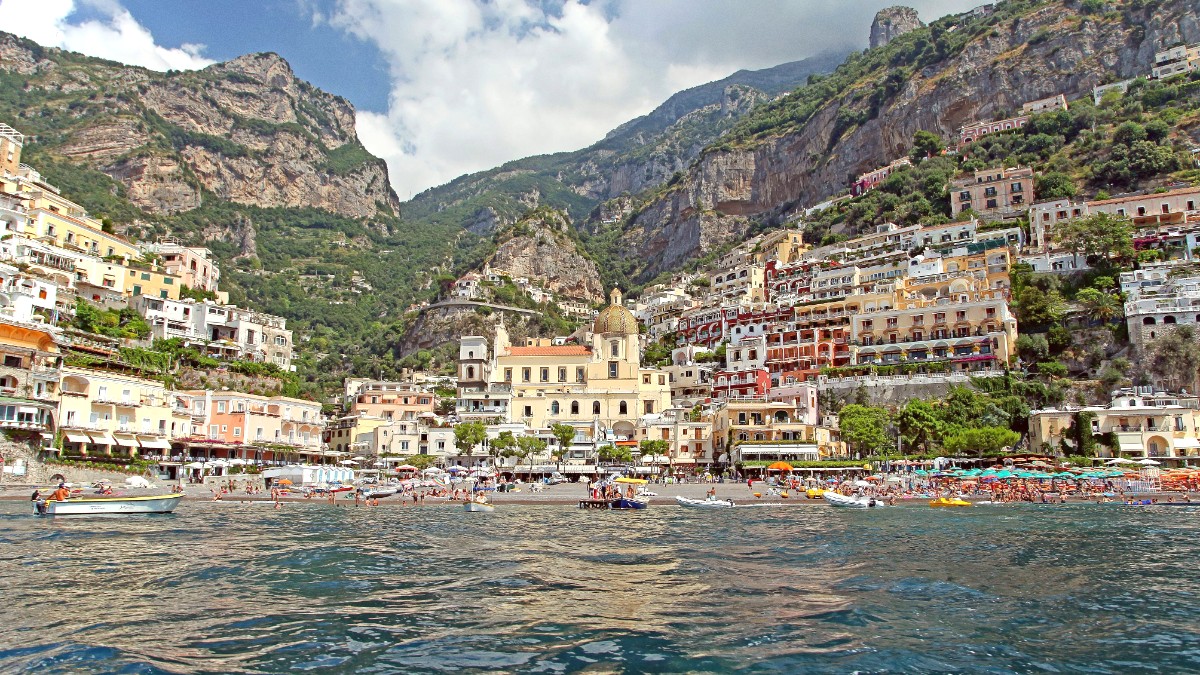
Campania, Italy
Monti Lattari Regional Park protects its unique biodiversity and dramatic landscape. When hiking, stay on marked trails to avoid damaging flora and disturbing wildlife.
Water resources are precious. Use water mindfully: take shorter showers, turn off taps, and reuse towels. Support establishments promoting water-saving practices. Use a Reusable water bottle.
Consider carbon offset programs for flights to lessen your carbon footprint. Many airlines have this option during booking. Choose public transport over private taxis to reduce per-passenger emissions and traffic.
Your interaction with the local culture can greatly enrich your journey.
Many local initiatives focus on preserving traditional crafts (like ceramic making and sandal making) and culinary heritage. Your support helps keep these traditions alive.
A few words in Italian are greatly appreciated. Modesty in dress, especially at religious sites, shows respect. Be mindful and discreet when taking photos.
While Positano is photogenic, remember that people live and work there. Be discreet and avoid intrusive photography. Public spaces are also private lives.
Entering religious sites warrants respectful behavior and attire to honor local customs and beliefs. These places are sacred to the community.
Choose outdoor gear from environmentally conscious brands like Patagonia for your hikes and water activities.
Shop PatagoniaReduce waste by opting for reusable travel products from stores such as Package Free Shop.
Shop Package FreeLook for sustainable practices in your accommodation and tour choices. Your choices contribute to the preservation of this unique environment.
Your spending decisions directly shape the local economy. Opt for choices that support the community.
Support small, locally owned businesses, B&Bs, and restaurants. This helps your tourism money benefit the local economy rather than large international chains.
Seek products clearly labeled as "Made in Italy" or sourced from local artisans. Be wary of mass-produced souvenirs that may not originate locally.
Your choice of dining and shopping directly boosts the local community. Every euro spent locally helps sustain jobs and cultural practices.
Be aware of potential over-tourism, especially during peak season. Consider visiting in shoulder seasons (spring or autumn) to lessen your presence.
If you wish to donate, research local charities or community projects rather than giving money to individuals on the street. This directs your contribution to those who need it most in a structured and effective way.
Seek out organizations supporting local community development.
Find initiatives focused on environmental protection or cultural preservation.
Ensure your donations make a lasting positive difference.
Walk as much as possible. It is the best way to experience Positano and lessens your environmental impact. Plus, it balances out all the delicious pasta and gelato!
Conscious choices contribute to the longevity and well-being of Positano and its surrounding environment.
Seek out hotels or tour operators that highlight their sustainability efforts. Inquire directly about their practices if not clearly stated.
Mitigate your travel carbon footprint. Choose public transport where possible. These modes of transport have a lower per-passenger emission rate.
Your travel choices can support conservation and ethical practices, making a positive impact on the environment and local communities.
Book with ethical tour operators like G Adventures, known for responsible travel.
G AdventuresSupport organizations like The Rainforest Site (GreaterGood), which combine conservation with a store.
The Rainforest SiteOpt for gear from companies committed to sustainability, reducing environmental impact.
PatagoniaSeparate bins for plastic, paper, glass, and organic waste are usually available. Follow local guidelines for sorting. Avoid littering, especially along coastal paths, beaches, and in the sea. Plastic pollution is a global concern, and protecting the Mediterranean is a shared responsibility.
Carry a small bag for your trash until you find a proper bin. Using a reusable water bottle and refilling from safe tap water sources significantly lessens plastic waste.